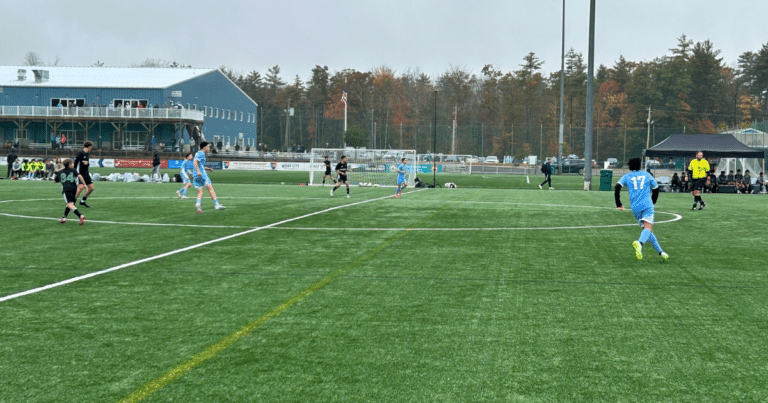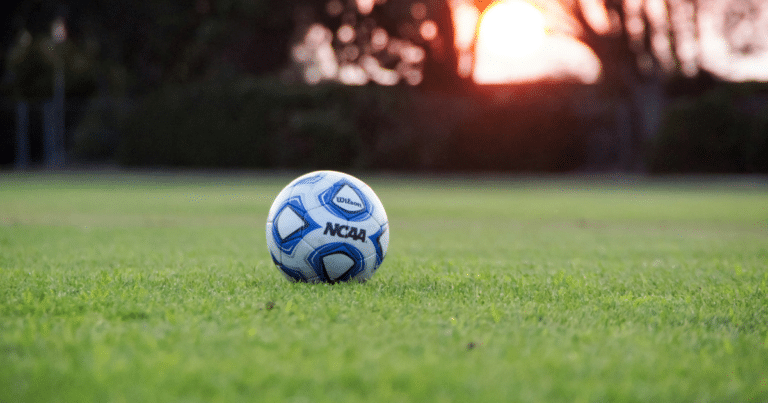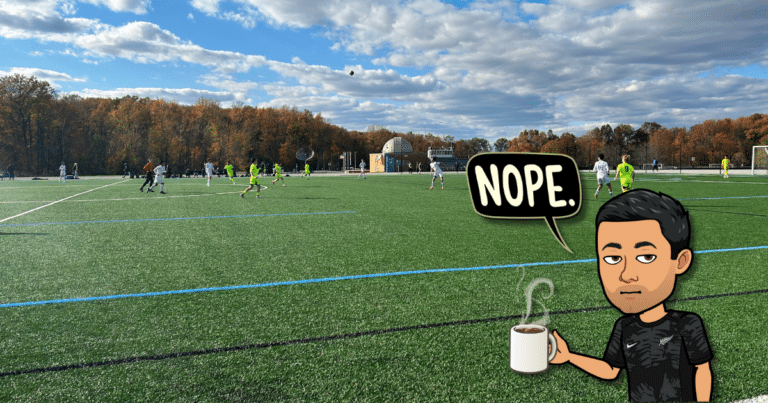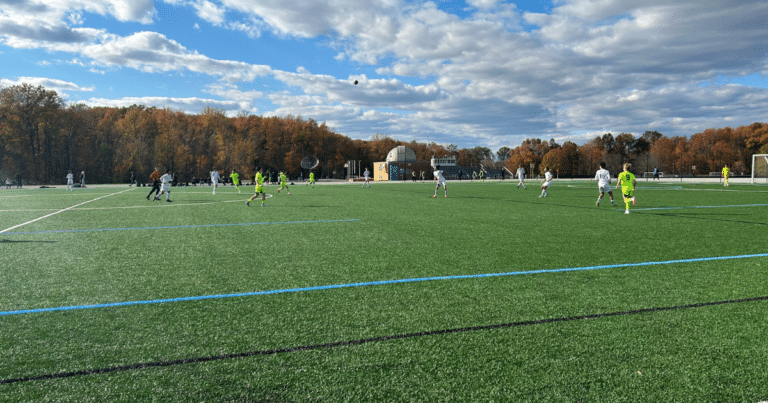Are You Academically Eligible? What Every Soccer Recruit Needs
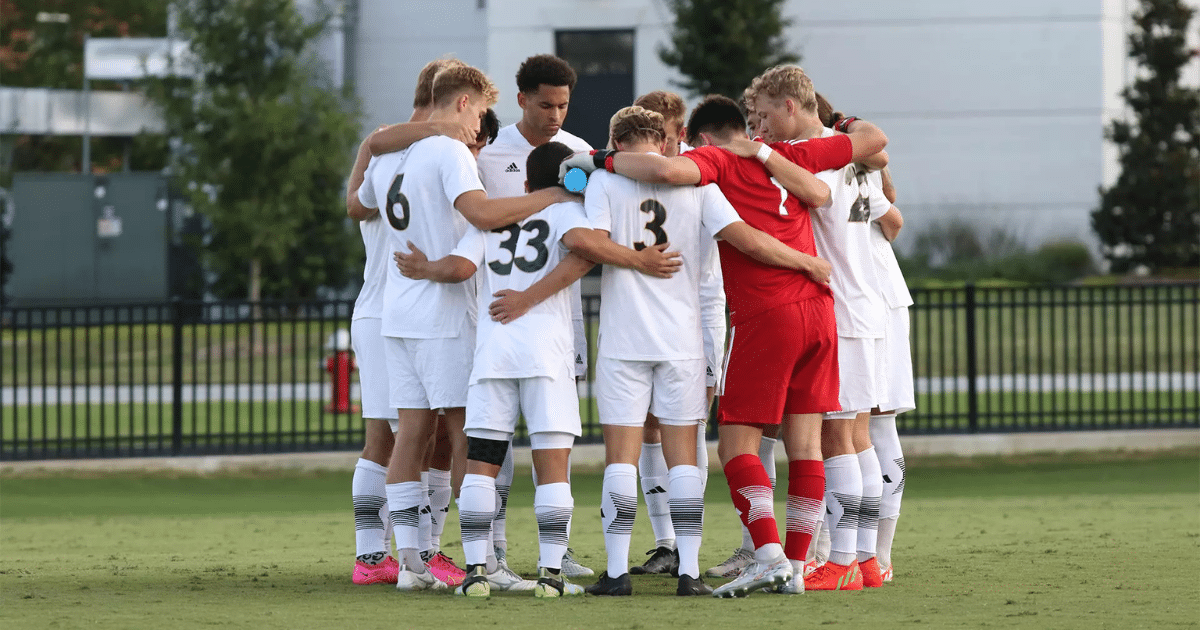
To become a college soccer player, you need good grades just as much as good skills on the field. Here’s what you need to know about academic requirements.
TL;DR:
The Academic Side of Soccer Recruiting
Many high school soccer players dream of playing in college. But having exceptional skills on the field is only part of it. College coaches need players who can stay eligible to play by keeping good grades.
“Coaches recruit students, not just athletes,” says many college soccer programs. This means your classroom performance matters just as much as your performance on the field.
GPA Requirements: Know Your Numbers
Different college levels have different GPA requirements:
- NCAA Division I: You need a minimum 2.3 GPA in your core courses
- NCAA Division II: You need a minimum 2.2 GPA in your core courses
- NCAA Division III: Each school sets its own standards, but most want at least a 2.5 GPA
- NAIA Schools: You need a minimum 2.0 GPA to be eligible
What does this mean? If you have mostly Bs and Cs, you’ll meet the minimum requirements. But many coaches look for higher GPAs to make sure you can handle college classes.
Core Courses: The Classes That Count
Not all classes count the same for eligibility. The NCAA and NAIA focus on “core courses,” which include:
- English (4 years)
- Math (3 years, Algebra 1 or higher)
- Science (2 years, including one lab science)
- Additional English, math, or science (1 year)
- Social studies (2 years)
- Foreign language or other approved electives (4 years)
For NCAA Division I, you must complete 10 of these core courses before your senior year. This rule helps make sure you’re not trying to cram all your requirements at the last minute.
Standardized Tests: Another Way to Stand Out
While most colleges are now “test optional,” standardized tests still matter for academic eligibility:
- NCAA uses a sliding scale that combines your core GPA with your SAT or ACT scores
- Higher GPA = Lower required test scores
- Lower GPA = Higher required test scores
For example, if you have a 3.0 GPA, you might need an 830 SAT or 68 sum ACT. But with a 2.5 GPA, you’d need a 980 SAT or 83 sum ACT.
Should you take it? It can’t hurt, but it might not help either. I would take it if I were a current athlete because it might be a differentiator. The worst case is you don’t submit your scores.
Creating Your Academic Game Plan
Here’s how to stay on track:
- Freshman Year: Take college-prep courses from the start and aim for A’s and B’s
- Sophomore Year: Keep focusing on core courses and start thinking about the SAT/ACT
- Junior Year: Take standardized tests and make sure you’re on track with core courses
- Senior Year: Keep your grades up (even after you commit to a school)
Your school’s guidance counselor should keep you on track. Share your goals of playing college soccer with them to ensure there’s a plan in place!
Beyond the Minimum: Why You Should Aim Higher
While meeting the minimum requirements makes you eligible, aiming higher gives you:
- More college options
- Better scholarship opportunities
- Less stress about staying eligible in college
- More time to focus on soccer instead of academic probation
“The players who succeed in my program are the ones who treat the classroom with the same intensity as the field,” says one DI men’s coach.
The Registration Process
Don’t forget these important steps:
- Register with the NCAA Eligibility Center (for Division I and II) during your junior year
- Register with the NAIA Eligibility Center if you’re considering NAIA schools
- Send your official transcripts after graduation
- Have your SAT/ACT scores sent directly to the eligibility centers
Final Thoughts
Being a student-athlete means being a student first. College soccer can open doors to amazing opportunities, but only if you put in the work in the classroom.
Start strong academically, stay consistent, and communicate with your guidance counselor about eligibility requirements. Your future in college soccer depends on it!
Remember, four years go by really fast. Take full advantage of it because it could set you in a positive direction for the rest of your life.

Written By: SoccerNovo
SoccerNovo is an independent youth soccer media brand built to help parents, players, and coaches better understand the game and the pathways available in U.S. soccer. Our mission is to make youth soccer simpler, clearer, and more accessible for everyone involved in it.
Let’s connect


